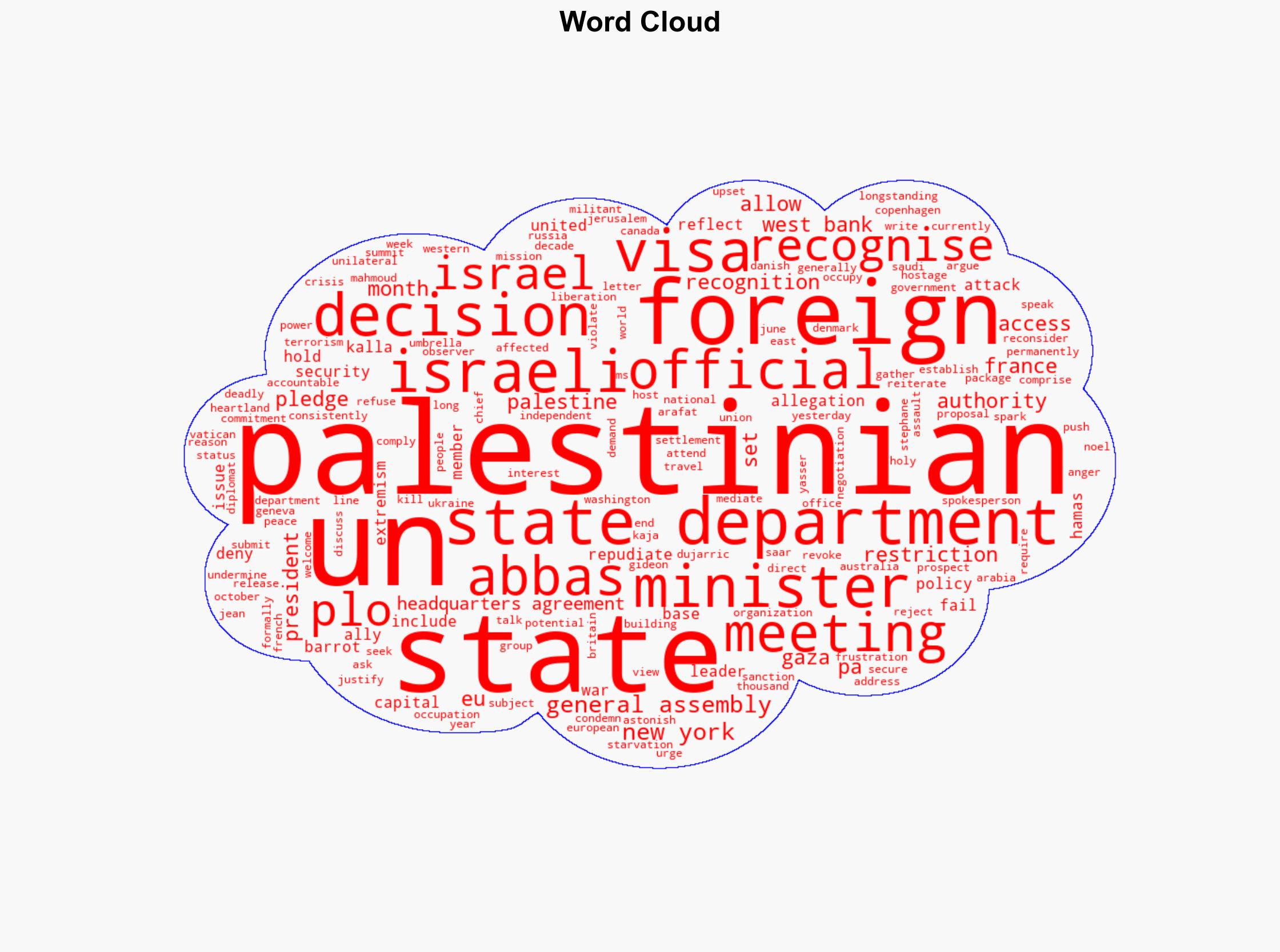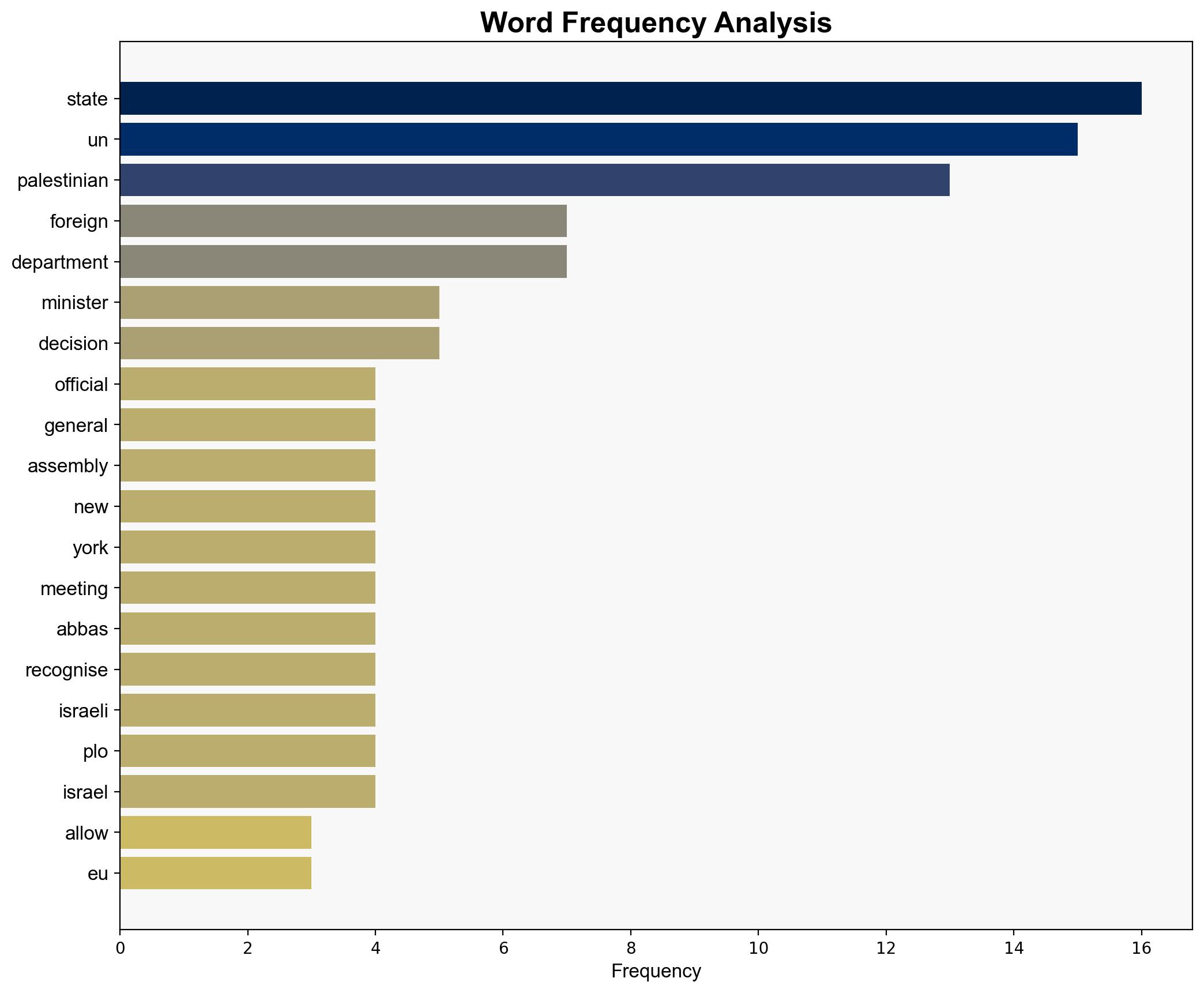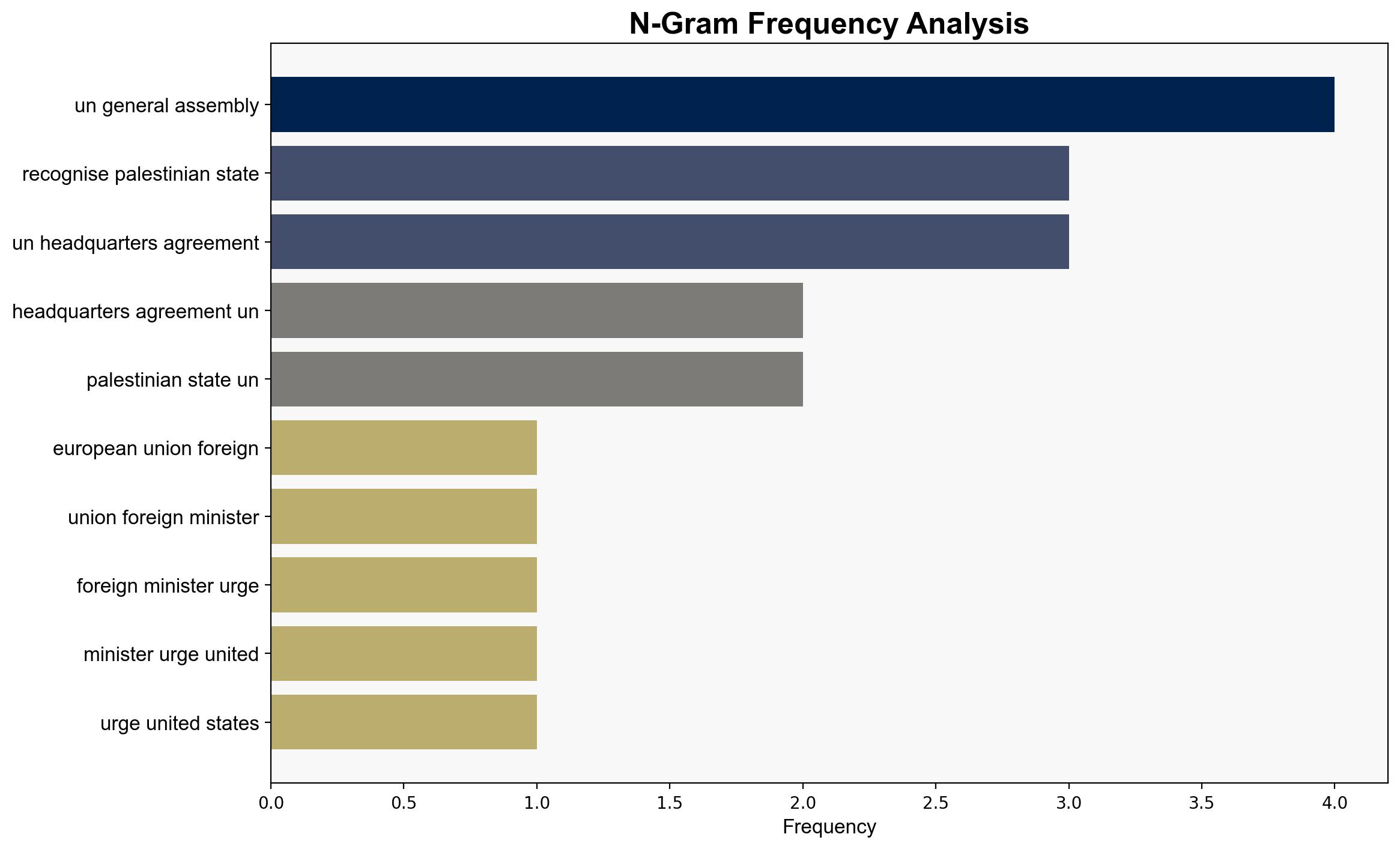US blocks Abbas from travelling to New York for UN summit – RTE
Published on: 2025-08-30
Intelligence Report: US blocks Abbas from travelling to New York for UN summit – RTE
1. BLUF (Bottom Line Up Front)
The United States’ decision to block Mahmoud Abbas from attending the UN summit in New York is likely motivated by a combination of security concerns and diplomatic strategy. The most supported hypothesis is that the US aims to pressure the Palestinian Authority to take a firmer stance against extremism, aligning with Israeli interests. Confidence level: Moderate. Recommended action: Engage in diplomatic dialogue to address security concerns while advocating for balanced regional stability.
2. Competing Hypotheses
1. **Security and Extremism Concerns**: The US decision is primarily driven by concerns over security and extremism, as indicated by longstanding allegations against the Palestinian Authority and PLO for not repudiating extremism. This aligns with the US’s historical stance on counter-terrorism and its strategic alliance with Israel.
2. **Diplomatic Leverage**: The decision is a strategic move to exert diplomatic pressure on the Palestinian Authority to engage in peace negotiations and comply with international commitments, potentially leveraging the situation to gain concessions in broader Middle Eastern diplomacy.
3. Key Assumptions and Red Flags
– **Assumptions**: The US assumes that blocking Abbas will lead to a change in the Palestinian Authority’s stance on extremism. It also assumes that this action will not significantly damage US-EU relations or broader international diplomatic efforts.
– **Red Flags**: The unilateral nature of the decision could exacerbate tensions with EU allies who have expressed opposition. The lack of a clear communication strategy from the US may lead to misinterpretations of intent.
– **Blind Spots**: Potential backlash from Arab states and other UN members who support Palestinian recognition could undermine US influence in the region.
4. Implications and Strategic Risks
– **Geopolitical**: The decision could strain US-EU relations, particularly if the EU perceives this as undermining multilateral diplomatic efforts.
– **Regional Stability**: Increased tensions between Israel and Palestine could escalate, potentially leading to renewed violence.
– **Diplomatic Isolation**: The US risks being perceived as obstructive in international forums, potentially weakening its diplomatic standing.
5. Recommendations and Outlook
- Engage in multilateral discussions with EU partners to align on a cohesive strategy addressing Palestinian statehood and security concerns.
- Consider a phased approach to lifting travel restrictions contingent on verifiable actions by the Palestinian Authority against extremism.
- Scenario Projections:
- Best: US and EU reach a consensus on a diplomatic approach, leading to resumed peace talks.
- Worst: Escalation of violence in the region, further isolating the US diplomatically.
- Most Likely: Continued diplomatic tension with gradual de-escalation through backchannel negotiations.
6. Key Individuals and Entities
– Mahmoud Abbas
– Kaja Kallas
– Jean-Noel Barrot
– Gideon Saar
7. Thematic Tags
national security threats, diplomacy, counter-terrorism, Middle East stability




